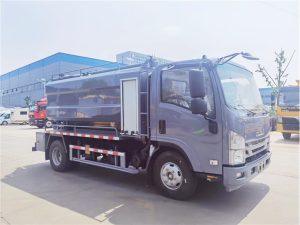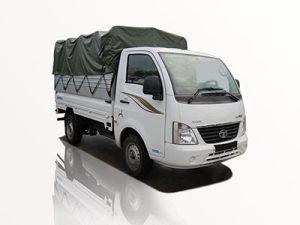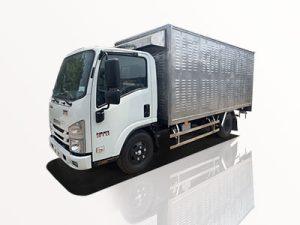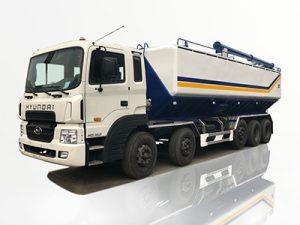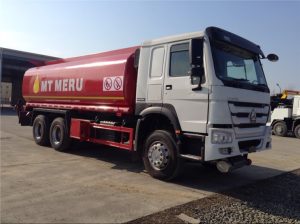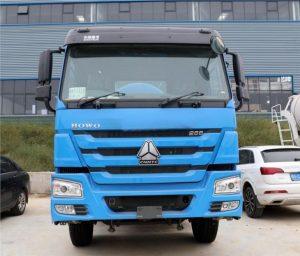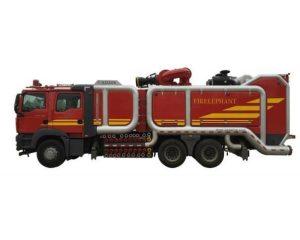Monday to Saturday - 8:00 -17:30
Exploring Capital City Trucks: Your Comprehensive Guide
Introduction to Capital City Trucks
Capital city trucks are vital components in urban logistics, serving the intricate web of transportation needs in major metropolitan areas. These vehicles play a key role in moving goods, ensuring efficient delivery, and supporting local economies. In this article, we will delve into the various aspects of capital city trucks, including their types, popular models, operational challenges, and the future of this essential transport segment. Whether you are a business owner, fleet manager, or simply interested in urban transport, this guide offers valuable insights.
The Importance of Trucks in Capital Cities
Trucks are crucial for any capital city, as they facilitate the movement of goods and services throughout the urban landscape. Their importance can be summarized in the following key points:
- Economic Impact: Trucks support local economies by transporting goods, creating jobs, and enabling businesses to thrive.
- Urban Logistics: Efficient logistics operations rely on trucks to ensure timely deliveries in densely populated areas.
- Public Services: Trucks are utilized for waste management, emergency services, and maintenance of public infrastructure.
Types of Trucks Commonly Used in Capital Cities
Understanding the variations in truck types can help you determine which vehicles are best suited for specific tasks within a capital city.
1. Light Trucks
Light trucks are versatile vehicles ideal for small deliveries and city driving. They include:
- Pickup Trucks: Great for personal use or transport of small loads.
- Vans: Used for goods transport or converting into mobile shops and services.
2. Medium-Duty Trucks
Medium-duty trucks can carry larger loads and are suitable for city freight operations. Examples include:
- Box Trucks: Commonly used by moving companies and local businesses.
- Flatbed Trucks: Ideal for transporting construction materials or machinery.
3. Heavy-Duty Trucks
Heavy-duty trucks are necessary for long-haul deliveries and larger shipments. Key trucks include:
- 18-Wheelers: Typically found on highways, carrying significant loads.
- Dump Trucks: Essential for construction sites and heavy material transport.
Top Capital City Truck Models in 2023
As the logistics landscape evolves, so do the truck models. Here are some of the top-rated trucks currently popular in capital cities:
| Truck Model | Type | Load Capacity | Fuel Efficiency |
|---|---|---|---|
| Ford F-150 | Light Truck | 3,325 lbs | 20-26 MPG |
| Ram 2500 | Medium-Duty Truck | 4,400 lbs | 16-22 MPG |
| Freightliner Cascadia | Heavy-Duty Truck | 80,000 lbs | 7-10 MPG |
| Isuzu NPR HD | Medium-Duty Truck | 12,000 lbs | 12-16 MPG |
Challenges Faced by Trucks in Urban Environments
Despite their importance, capital city trucks face several challenges that can hinder their efficiency:
1. Traffic Congestion
Heavy traffic often delays delivery times. This is especially problematic in densely populated cities where truck routes are limited.
2. Limited Parking
Finding parking is often a major challenge for truck drivers, affecting loading and unloading times.
3. Regulatory Compliance
Trucking companies must comply with various regulations, including emissions standards and weight restrictions, which can complicate operations.
Trucking Regulations in Capital Cities
Regulations governing trucking in capital cities are designed to enhance safety and sustainability. Here are key regulatory aspects:
1. Emission Standards
Many cities have implemented strict emission standards to reduce air pollution. Trucking companies must invest in eco-friendly trucks to comply with these regulations.
2. Weight Limits
Weight restrictions on roads help maintain infrastructure stability. It’s important for truck drivers to be aware of these limits to avoid penalties.
3. Delivery Zones and Timings
Some capital cities designate specific zones and times for truck deliveries to minimize disruption during peak traffic periods.
The Future of Capital City Trucks
As cities evolve, the future of trucking in capital cities looks promising with innovative technologies and strategies:
1. Electric Trucks
The transition to electric trucks is gaining momentum, driven by the desire for sustainable transport solutions. These vehicles offer reduced emissions and lower operational costs.
2. Autonomous Vehicles
Self-driving trucks could revolutionize logistics by reducing labor costs and improving efficiency, particularly in urban areas.
3. Smart Logistics Systems
Integrating technology such as GPS tracking and route optimization software will enhance operational efficiency and reduce delivery times.
Tips for Optimizing Truck Operations in Capital Cities
To run an effective trucking operation within a capital city, consider the following practical tips:
1. Invest in Technology
Utilize route planning software to avoid traffic and maximize delivery efficiency.
2. Train Drivers
Regular training on safety and regulations will minimize accidents and ensure compliance with local laws.
3. Build Relationships
Establish good communication with local authorities to stay updated on regulations and traffic changes.
4. Utilize Eco-Friendly Vehicles
Transitioning to greener options reduces operating costs and enhances your brand image.
Frequently Asked Questions (FAQs)
1. What are the different types of trucks used in capital cities?
The types of trucks include light trucks, medium-duty trucks, and heavy-duty trucks, each serving various logistical needs.
2. How are regulations affecting truck operations in urban areas?
Regulations such as emission standards, weight limits, and designated delivery zones can significantly impact truck operations.
3. What is the importance of regular truck maintenance?
Regular maintenance ensures truck safety, enhances performance, and prolongs vehicle lifespan, which is essential for efficient operations.
4. How can companies improve their truck fleet efficiency?
Investing in technology, training, optimizing routes, and using eco-friendly vehicles are key strategies for improving fleet efficiency.
5. What are the benefits of electric trucks in capital cities?
Electric trucks offer lower emissions, reduced fuel costs, and quieter operation, making them ideal for urban environments.
6. How can technology enhance urban trucking operations?
Technology can streamline routing, improve tracking, and facilitate better communication, ultimately increasing operational efficiency.


